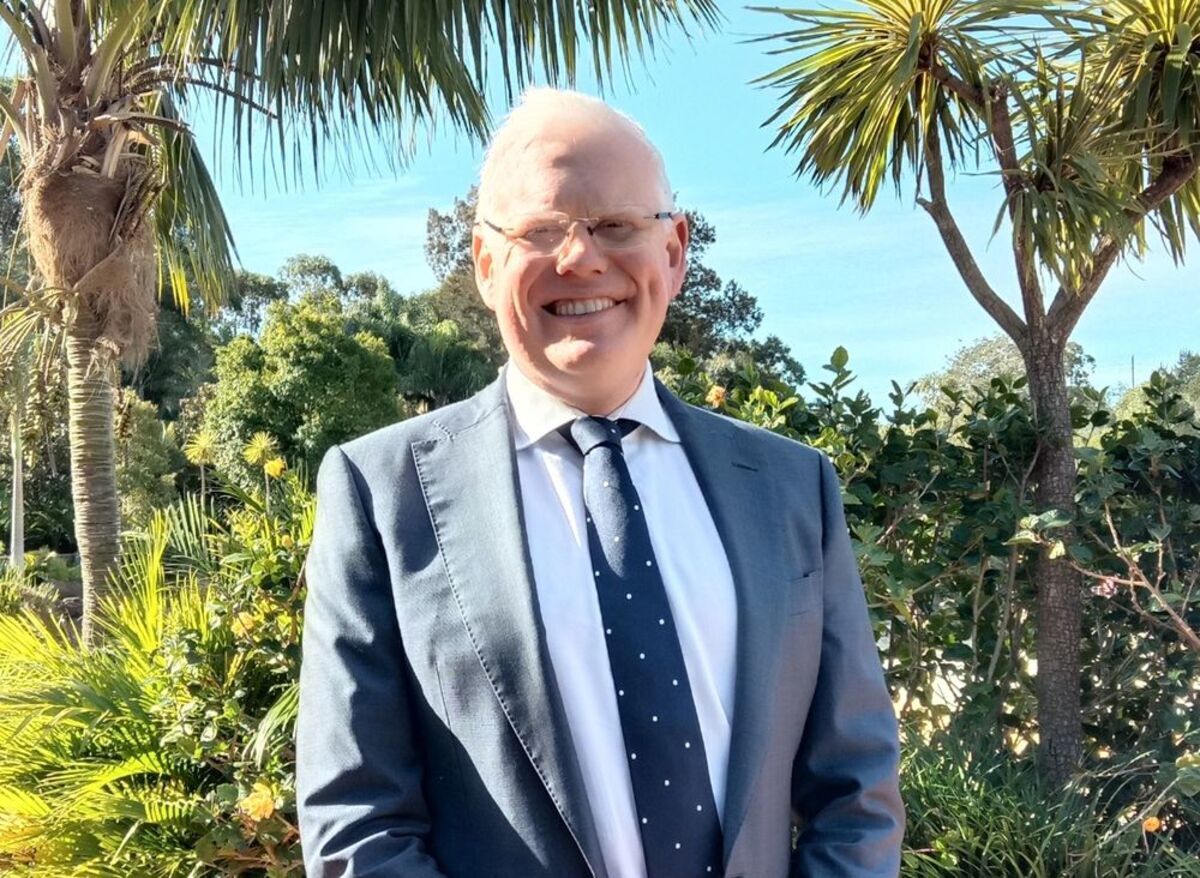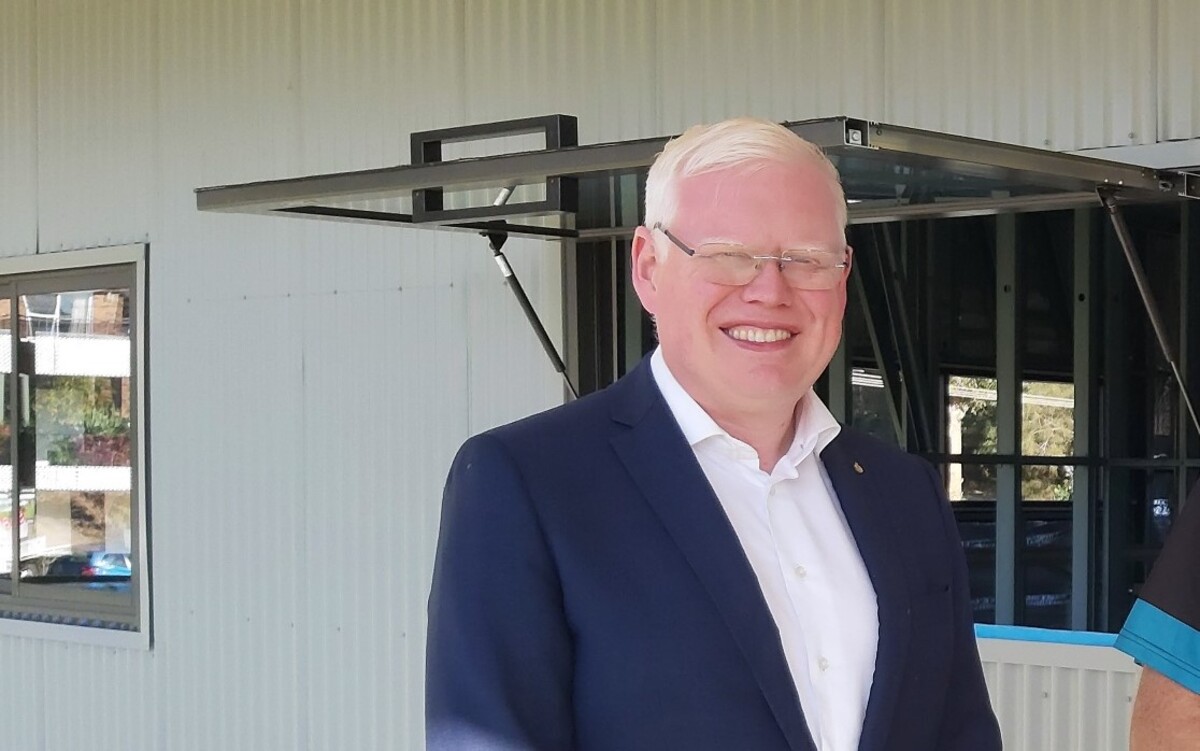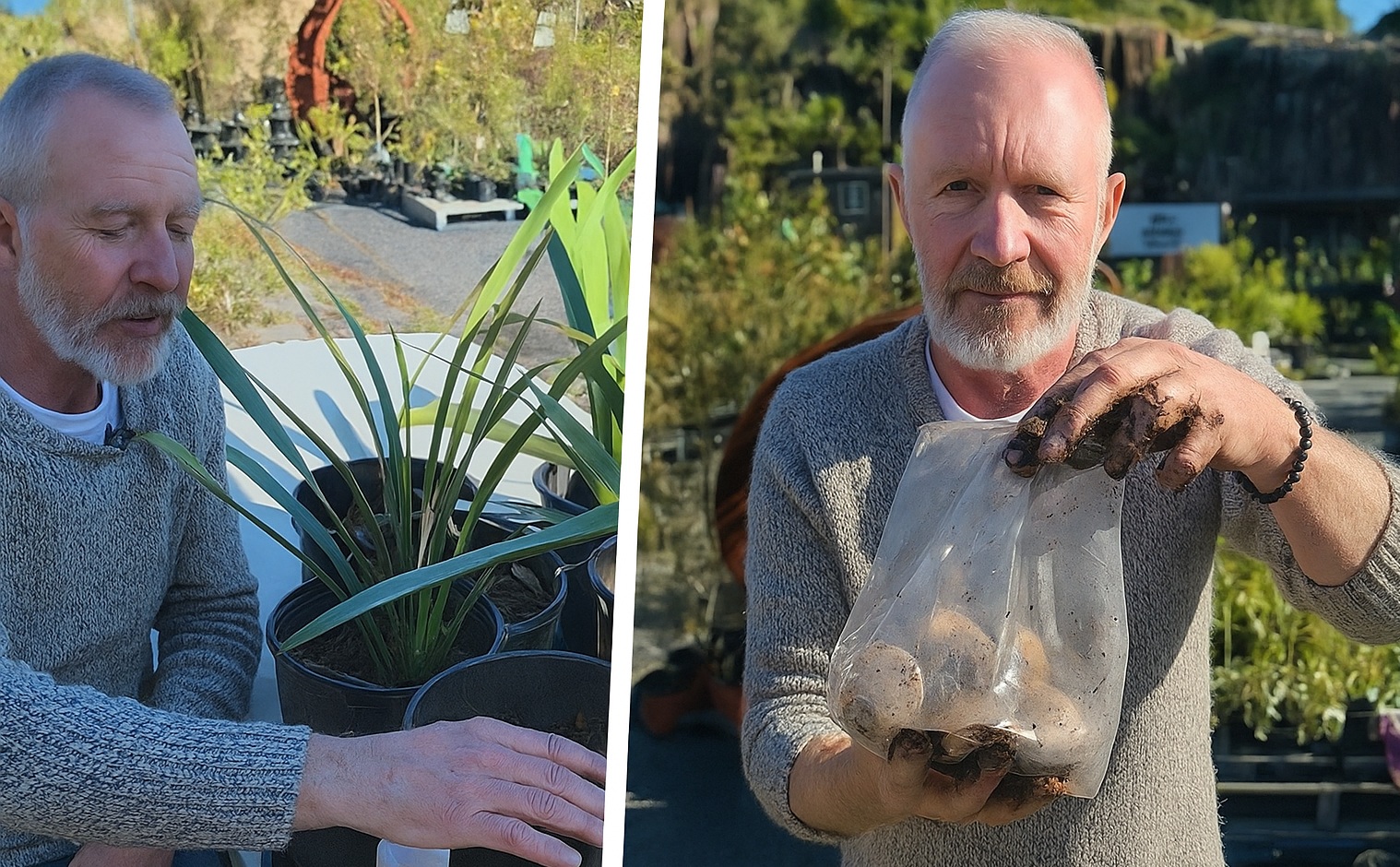Beautiful but deadly: Keep an eye out for octopus in rockpools
Danielle Woolage
26 July 2025, 8:00 AM
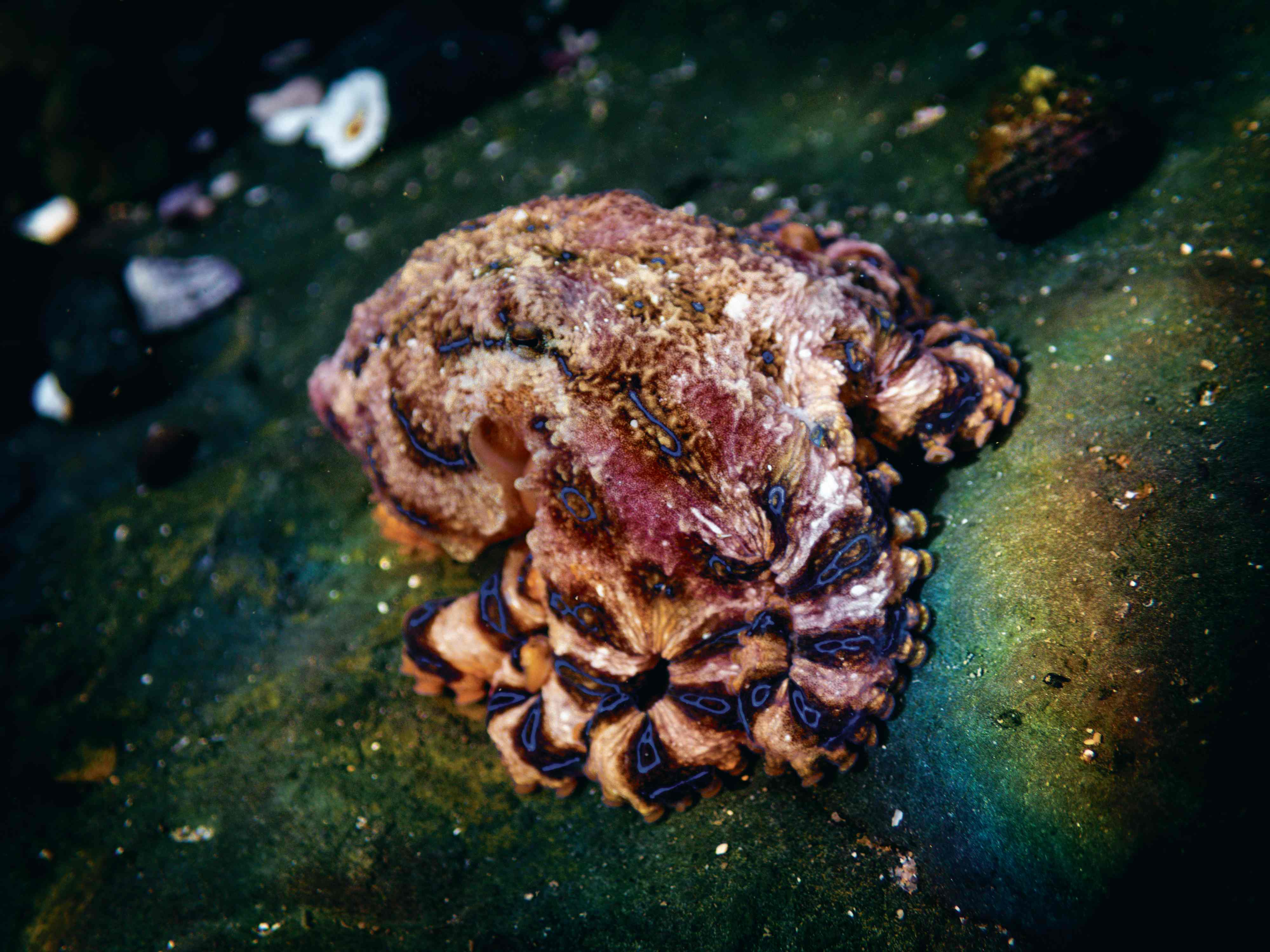 Photo: Scott Gutterson
Photo: Scott GuttersonFor years, Scott Gutterson has been patiently waiting for his Moby Dick moment - an up-close sighting of the beautiful but deadly blue-lined octopus.
Gutterson was in Kiama Rockpool, camera gear at the ready, taking advantage of the crystal clear water.
Capturing footage of the amazing array of creatures that live below the surface is all part of his daily saltwater therapy.
“I was actually going in to capture a few photos of the gloomy octopus in the rockpool and this guy was cruising the bottom looking for food,” Gutterson said.
A member of the deadly blue-ringed octopus family, the shy mollusc is roughly the size of a 50-cent coin.
So when Gutterson spotted the blue-lined octopus less than 30cm from his foot he felt no fear, just elation.
“I reckon it's pretty rare for anyone to step on an octopus, especially a blue-ringed or blue-lined octopus, they are so small and timid and move so fast,” he explained.
“So even if its arms come out and touch you, they actually have to use their beak to bite and release toxins. I think you have to be very unlucky if you're bitten because they're not going to bite unless they feel threatened.”
The encounter was “a real unicorn moment” for the keen underwater snapper.
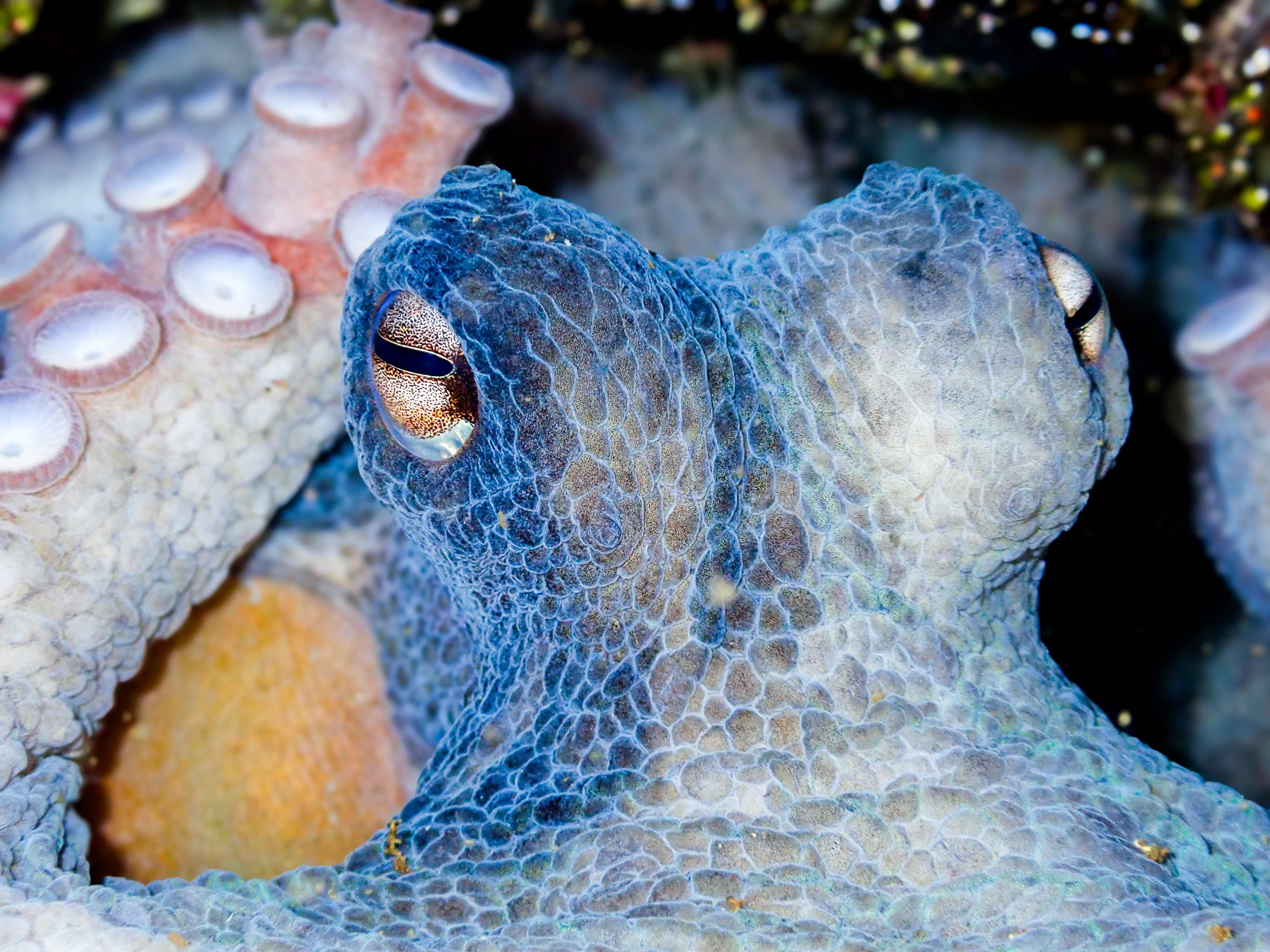
Photo: Scott Gutterson
Since moving to Gerringong from Toowoomba in 2017, he has made it his mission to swim in the ocean daily.
The former Navy helicopter pilot joined the Werri Point Swimmers when he retired from the military after almost three decades of service.
“I'm really kicking myself for not starting ocean swimming earlier,” he said.
“I've travelled all over with the Navy - the Middle East and the Red Sea, all these beautiful places where I'd love to have been swimming or free diving. But at least I feel like I'm making up for lost time now.”
The ocean is his happy place - it’s where he found his sense of community and met some of his closest friends, both human and marine.
Last year he formed a special bond with a gloomy octopus he discovered in Kiama rockpool. He named her Roxy and for almost 10 months he would visit her every day.
“Some days it was pouring down rain, freezing cold, but I’d go down there just to see how she was doing,” he recalled.
The gloomy octopus (octopus tetricus) is a species known for its intelligence and named for its sad-looking eyes. But Roxy was far from downcast.
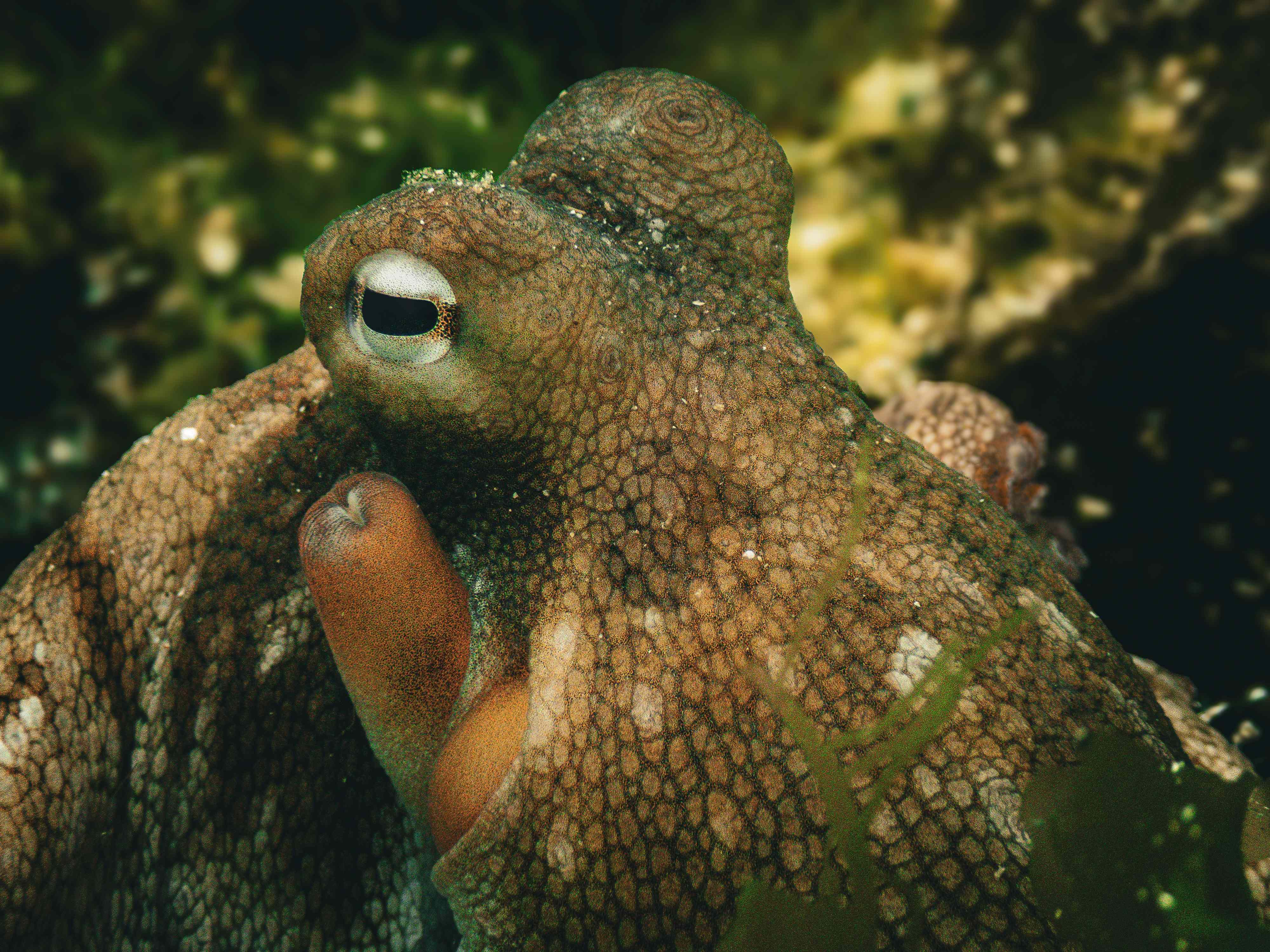
Photo: Scott Gutterson
“She knew who I was, she got to know me, she trusted me and we had this pretty cool relationship,” Gutterson said.
“I’d take my wife and kids down to see her and she’d hide in her hole. Then I’d go down there and she'd grab my hand and run her arms through my fingers, and I’d feel all her suckers. It was really beautiful.”
A gloomy octopus has a short lifespan, on average 11 months. Once a female lays her eggs she stops feeding and her focus is on protecting and caring for the eggs until they hatch. She dies a short time later.
Gutterson knew his time with Roxy was coming to an end.
“It really broke my heart,” he said. “Of all the interactions that I've had with marine creatures, she's been the one that's really touched my heart the most. You know, it's been a year and I'm still getting over it.
“Roxy was a beautiful female octopus and I am so grateful to have formed that bond with her. Even now when I swim past the spot where I met her I get emotional.”
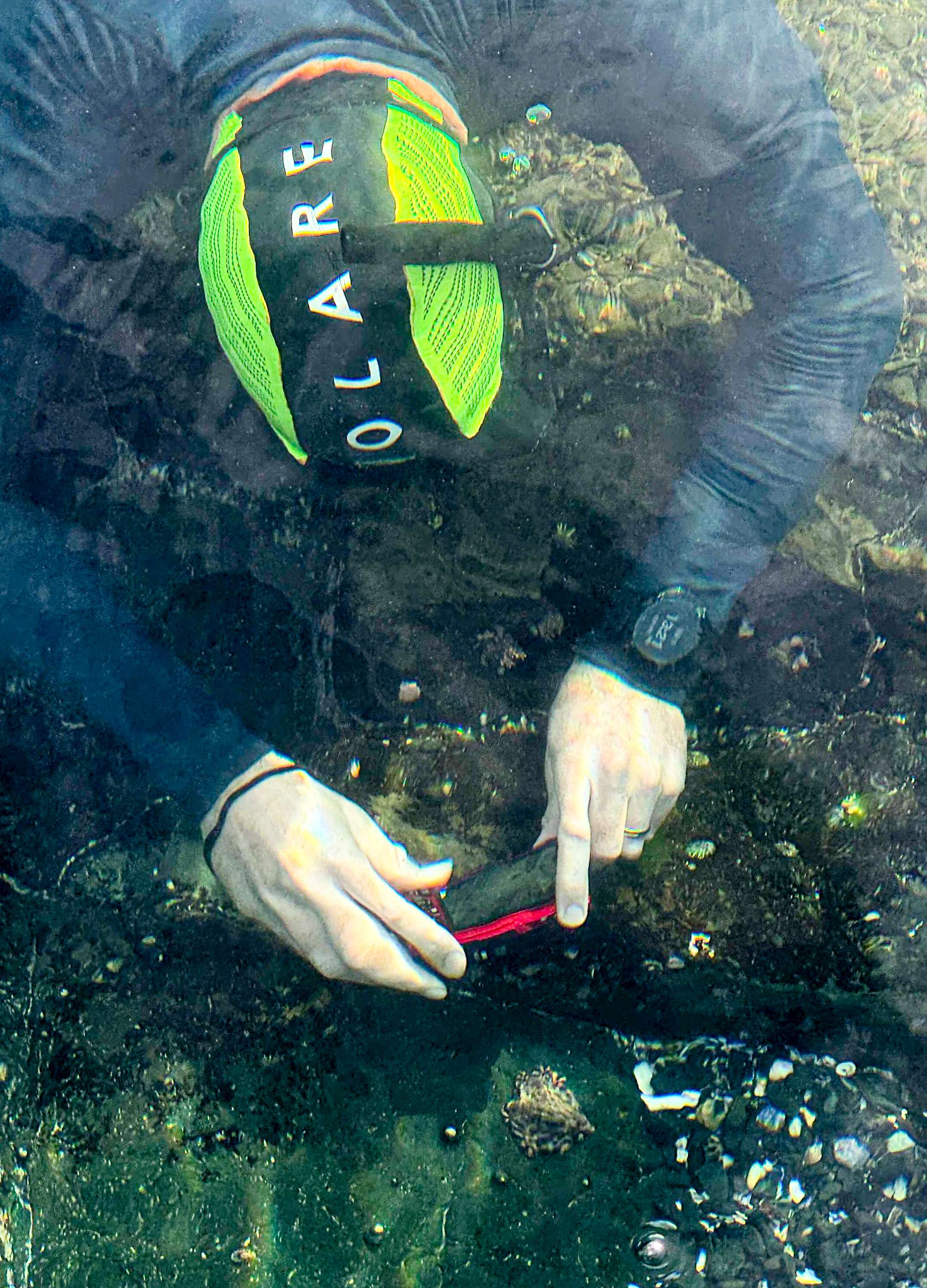
Scott in action with his underwater camera. Photo: Amy Cliff
Gutterson, now a pilot for the Toll Ambulance Rescue Helicopter Service, has “seen some pretty horrendous stuff” in his job.
His daily ocean swims, interactions with creatures like Roxy, and spotting “incredibly rare” marine life like the blue-lined octopus are the perfect antidote to his high-stress job.
“I may never see another blue-lined octopus again in my life, but I’ve got some great memories and cool footage,” he says.
“Just like Roxy, they’re locked in the bank of good memories that the ocean gives me. The rockpool and ocean really are the gifts that keep giving.”
NEWS

